
Introduction to Germany’s Athletic Heritage
Germany’s sports heritage is like an overachiever’s resume—so full of highlights, it makes everyone else feel like they’re still working on their high school essay. Let’s not kid ourselves; German sports teams have a knack for making the rest of the world look like they showed up to a marathon wearing flip-flops.
Whether it’s football, handball, or even winter sports, Germany approaches athletics with the kind of precision usually reserved for engineering luxury cars. They take their training and strategy as seriously as a kid takes their Halloween candy haul. And boy, does it pay off. The German national football team alone has made enough World Cup appearances to practically consider it their annual family reunion.
But let’s not stop at football. Germany also rocks it in other sports. Ever heard of Dirk Nowitzki? That guy made basketball look like a German specialty, proving that the country can excel beyond the soccer field. Then there’s the legendary Boris Becker and Steffi Graf, who ruled the tennis courts like they were royalty. Germany’s track and field athletes? Just casually breaking world records and collecting medals like they’re stamps.
The cultural impact of these sports achievements is massive. Imagine the entire country rallying behind a team with the same intensity they have for beer festivals—yes, it’s that serious. The energy in German cities during a major sports event is electric, as if someone plugged the Brandenburg Gate directly into the power grid.
And let’s not forget the Bundesliga, Germany’s top-tier football league, which enjoys a cult following that would make comic book fans jealous. Local derbies and national rivalries turn stadiums into cauldrons of emotion, blending the excitement of the Super Bowl with the fervor of a political rally.
So, when it comes to sports, Germany doesn’t just show up—they dominate, inspire, and, yes, occasionally make the rest of us rethink our life choices. If you’ve ever watched Germany play and wondered if they were born kicking balls or swinging rackets, you’re not alone.
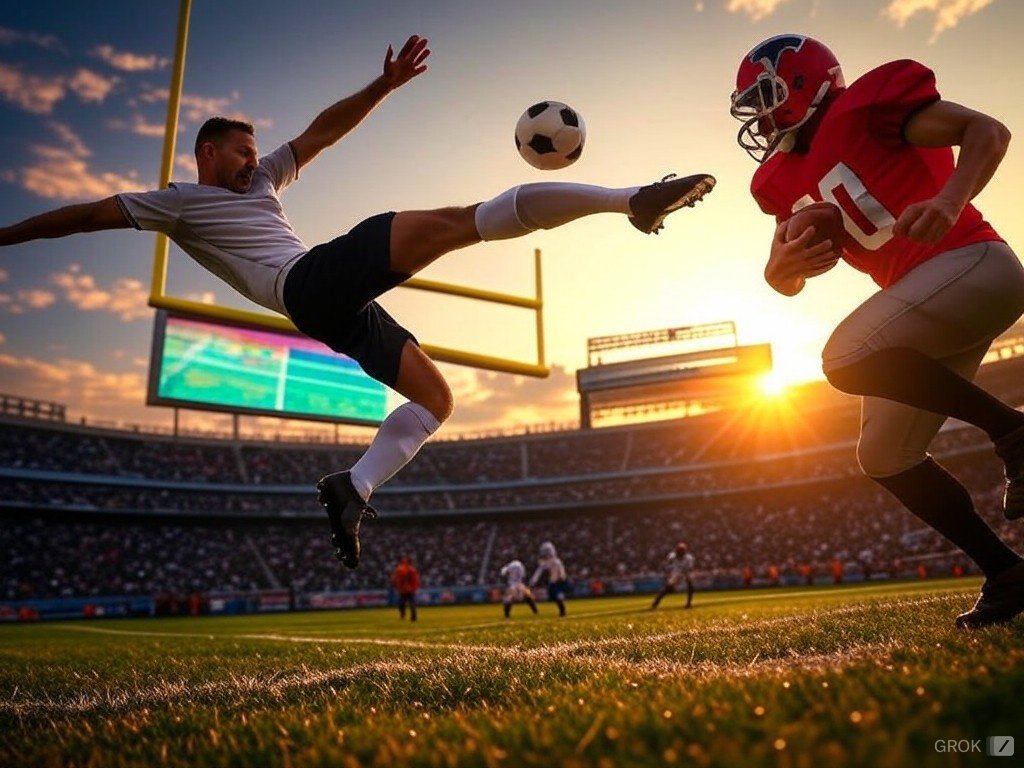
The German National Soccer Team’s World Cup Triumphs
Let’s dive into the world of the German National Soccer Team, where World Cup triumphs are as common as bratwurst at Oktoberfest. These guys have not just won the World Cup four times but have also been runners-up four times, just to keep things interesting and show off their ability to finish strong. Not to forget, their 2014 team achieved a record-breaking Elo rating of 2,205 points, the highest any national football team has ever seen. I mean, who doesn’t want a number that’s more impressive than their cousin’s IQ?
Germany’s soccer legends include the likes of Franz Beckenbauer, Gerd Müller, and Miroslav Klose, whose last names are as formidable as their skills on the field. Remember that moment in 2014 when Germany decided to give Brazil a very public 7-1 drubbing on their home turf? Yeah, Brazilians are still attending therapy for that one.
This team has a habit of turning high-stakes matches into their personal highlight reel. Take penalty shootouts, for instance. Germany has been in eight World Cup shootouts and won six of them. They’re basically the penalty shootout experts, proving they can keep their cool when it counts.
And it’s not just about winning. Germany’s approach to soccer is like a well-oiled machine. They combine individual talent with team cohesion in a way that makes other teams look like they’re still figuring out how to tie their cleats. The Germans are methodical, disciplined, and downright relentless on the pitch. It’s like watching a chess grandmaster who also happens to be a black belt.
So, next time you watch a World Cup match and see Germany on the roster, just remember: this is a team that’s more likely to turn a game into a masterclass than just another Sunday kickabout.
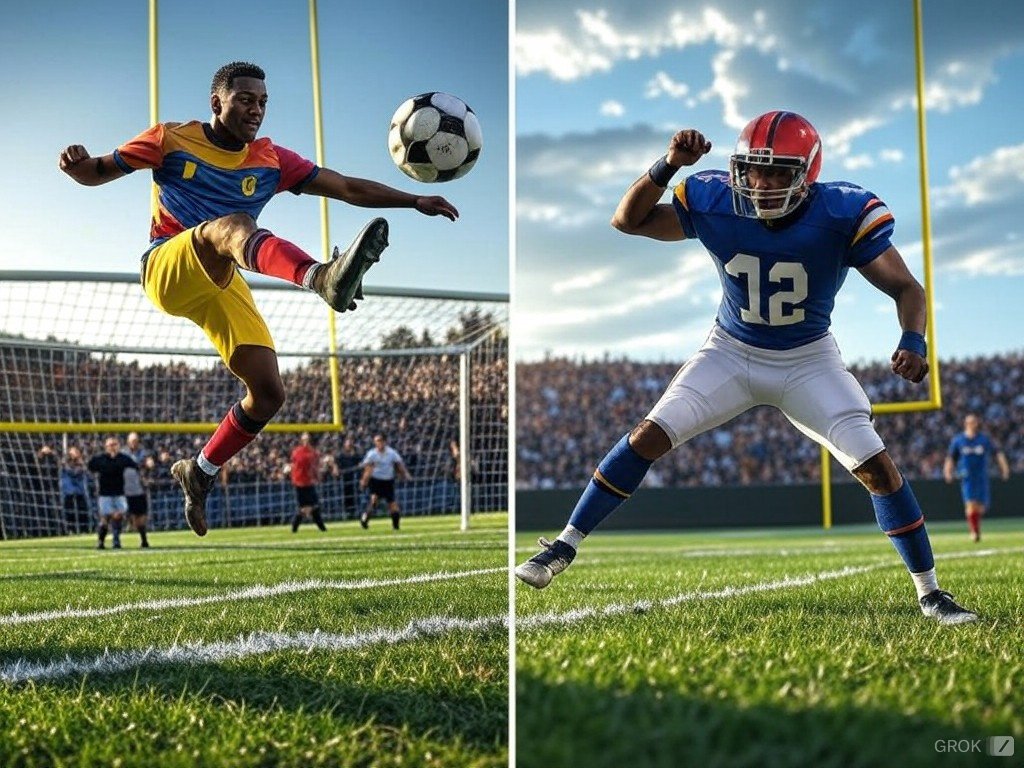
American Sporting Victories and National Identity
Imagine if Hollywood decided to turn sports victories into blockbuster scripts—oh wait, they already have. America’s sports history is basically a series of cinematic moments that make you want to stand up and salute the nearest flag. Let’s start with the Miracle on Ice in 1980. Picture this: a ragtag group of college kids facing off against the seemingly invincible Soviet Union in hockey. It’s the ultimate underdog tale, right up there with David vs. Goliath, except with more ice and fewer slingshots. When the U.S. team clinched that win, it wasn’t just a sports victory; it was a national ego boost that had people chanting “USA, USA!” like it was going out of style.
Fast forward to 1992, and you’ve got the USA Basketball Dream Team. Imagine being so good at basketball that your team is basically a superhero squad in sneakers. Michael Jordan, Magic Johnson, Larry Bird—they didn’t just play, they turned every game into a highlight reel. Opponents must have felt like they were auditioning for the role of “defeated extra” in a sports movie. Watching the Dream Team was like witnessing a masterclass in how to dunk on both the scoreboard and your self-esteem.
But it’s not just about the wins; it’s about the iconic moments that come with them. Take the 1999 Women’s World Cup. When Brandi Chastain scored the winning penalty kick and celebrated by whipping off her jersey, it became one of those freeze-frame moments that gets seared into your brain. It wasn’t just a victory for the team; it was a defining cultural moment that boosted the profile of women’s sports in the U.S. faster than you can say “equal pay.”
And let’s not forget how sports have fueled social change. Jackie Robinson breaking the color barrier in baseball wasn’t just a sports milestone; it was a significant moment in the Civil Rights Movement. Or how about Colin Kaepernick taking a knee? It turned the football field into a platform for national debate, proving that sports figures can ignite conversations that extend far beyond the game.
So yeah, when it comes to sports, America doesn’t just play to win. They play to create the kinds of stories that become part of the national identity, where every victory feels like a collective triumph.
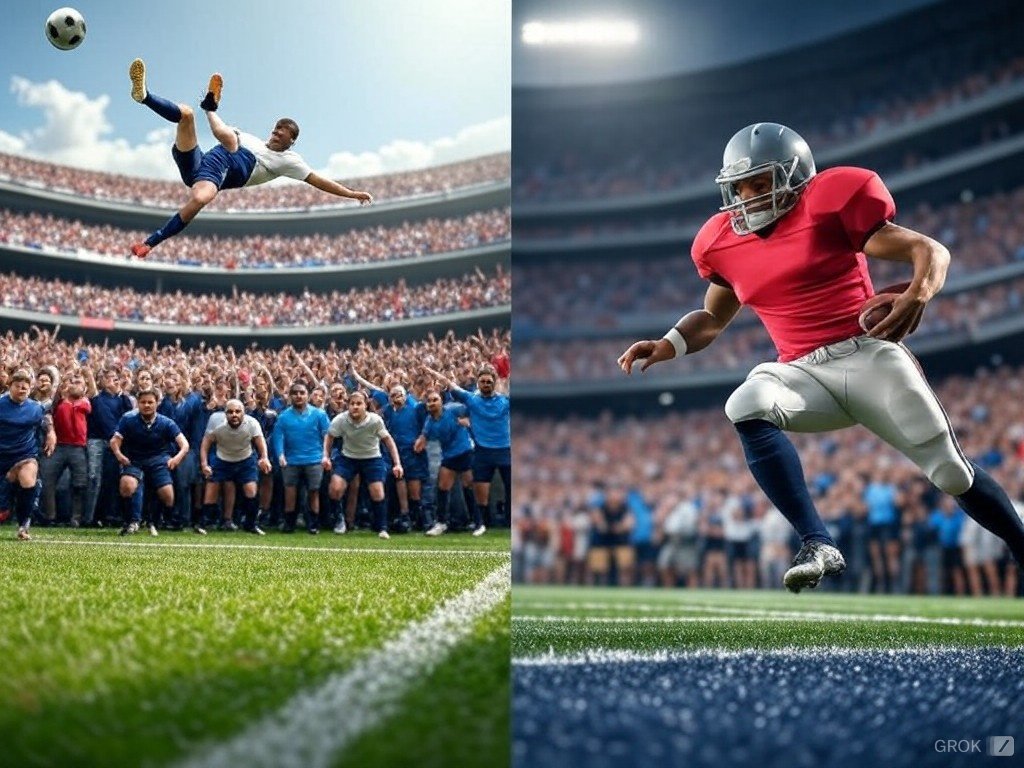
A Comparison of Sporting Accomplishments
Alright, let’s dive into the ultimate sports showdown: Germany’s methodical, all-in approach vs. America’s flair for the dramatic. Germany sports teams excel at turning matches into clinics on discipline and precision. Germany sports teams tend to thrive in penalty shootouts, having participated in eight and winning six of them. They’re basically the penalty shootout experts, proving they can keep their cool when it counts. It’s like they show up to a spelling bee and already know the dictionary by heart.
In contrast, the U.S. loves to keep us on the edge of our seats with last-minute comebacks and underdog stories that get Hollywood on speed dial. Think Miracle on Ice, where a bunch of college kids took down the Soviet hockey machine, or the Dream Team, which transformed Olympic basketball into a global slam dunk contest.
While Germany tends to emphasize a cohesive, machine-like efficiency—where every player knows their role like it’s tattooed on their arm—the U.S. often leans into individual brilliance. Whether it’s Michael Jordan flying through the air like he’s got a secret set of wings or Serena Williams serving tennis balls faster than a speeding bullet, American athletes turn their sports into personal stages for jaw-dropping feats.
But it’s not just about how they win; it’s also about the ripples these victories create. German victories are moments of national unity, drawing everyone into a collective celebration that’s part beer fest, part national pride. Meanwhile, American wins are like fireworks shows, sparking conversations about everything from social issues to the latest sneaker trends.
So, which style is better? Do you prefer the clinical precision of Germany sports teams that make success look like a science? Or do you go for the U.S. approach, where every game feels like a suspense thriller with an all-star cast? Either way, these accomplishments serve as more than just wins—they’re milestones that capture the essence of their respective cultures.
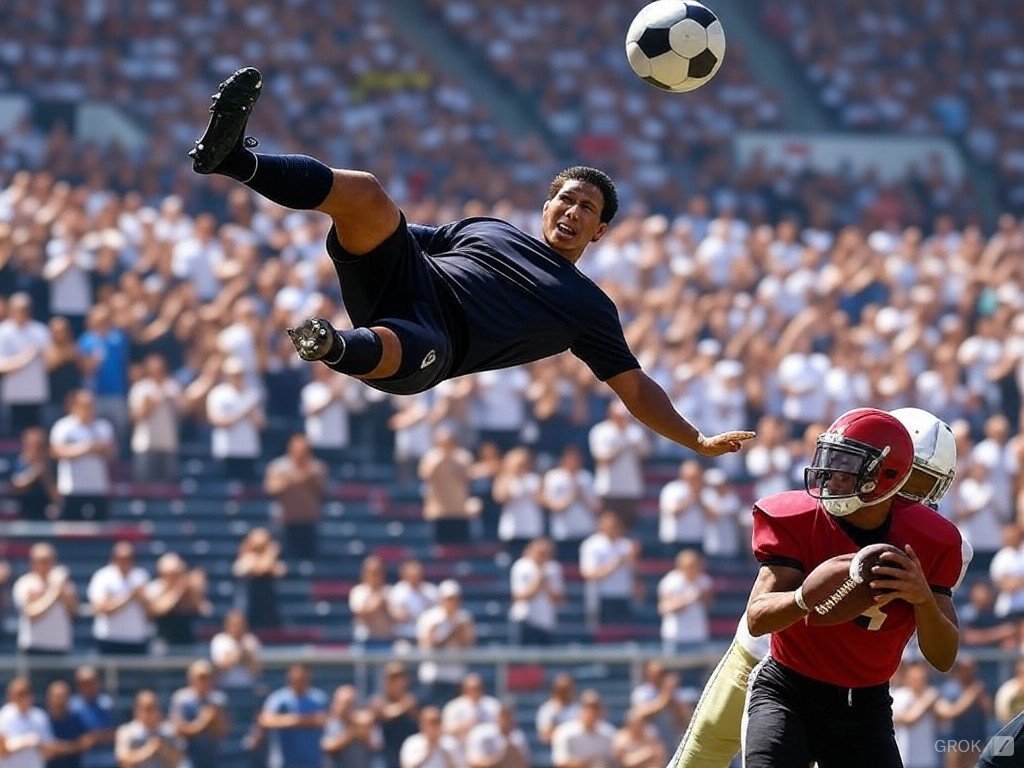
The Cultural and Social Impact of Sports in Germany and the U.S.
When it comes to cultural impact, sports in Germany and the U.S. are like social superglue. In Germany, sports are more than just weekend entertainment; they’re communal events that pull everyone from grandmas to toddlers to the local stadium. Imagine the kind of energy that could power a small city every time there’s a football match. Whether it’s FC Bayern Munich battling it out in the Bundesliga or the national team taking the world stage, sports events become the center of town life, turning otherwise reserved Germans into high-fiving, face-painting enthusiasts. The magic? It’s like Oktoberfest, but with more jerseys and fewer pretzels.
Now, hop over the Atlantic, and you’ll find a different flavor of sports mania in the U.S. Here, sports are practically embedded in the DNA. From tailgate parties that rival some countries’ national holidays to parades for championship wins that shut down entire cities, sports are a big deal. Take the Super Bowl, a spectacle so grand that even people who don’t care about football tune in for the commercials. Then there’s March Madness, a time when productivity plummets because everyone’s too busy tracking their brackets like they’re managing a Fortune 500 company.
But it doesn’t stop at fun and games. American sports figures often moonlight as social change agents. Think Jackie Robinson breaking Major League Baseball’s color barrier, a move that was as much about civil rights as it was about baseball. More recently, athletes like Megan Rapinoe and Colin Kaepernick have turned their platforms into megaphones for social justice, making headlines both on and off the field. It’s not just about scoring goals or making baskets; it’s about sparking conversations that resonate far beyond the stadium walls.
In Germany, sports events often serve as a collective catharsis. The entire nation comes together, whether it’s celebrating a World Cup win or commiserating over a tough loss. It’s a chance for everyone to feel a part of something larger, to unite under a single banner and chant their hearts out.
So, whether it’s transforming a city into a party zone or pushing for social change, sports in both Germany and the U.S. have this uncanny ability to bring people together, make noise, and occasionally, make history.
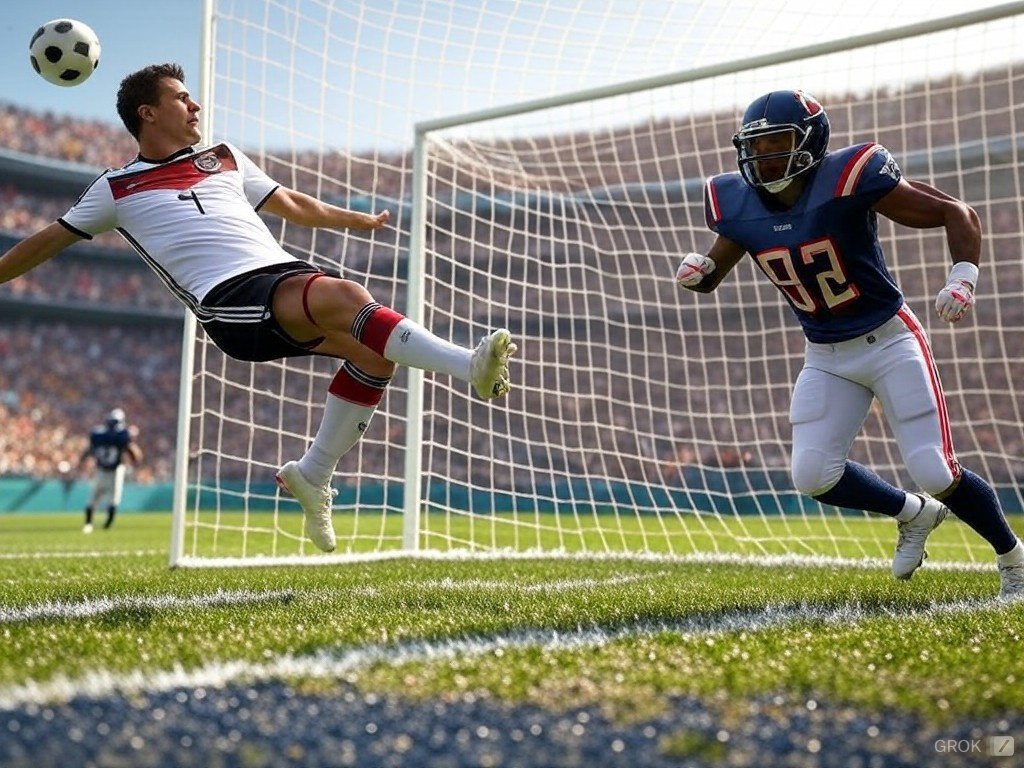
Conclusion: Who Did It Best?
Alright, let’s wrap this up. Who wore the sports crown better—Germany or the U.S.? It’s like comparing apples to bratwursts. Both bring their own flavors to the table, and honestly, it depends on your taste.
Germany’s sports teams operate like a finely-tuned machine. They excel with surgical precision, discipline, and a team-first mentality. It’s like watching a Swiss watch—every part works in perfect harmony to keep time (or in this case, to score goals and win matches). If you’re a fan of watching things go like clockwork, you’ll find Germany’s approach downright poetic. They’ve got that “engineer’s touch,” making even the most complex strategies look as easy as tying your shoes.
On the flip side, you’ve got the U.S., the land of the dramatic finish. American sports victories are built on a cocktail of individual brilliance, come-from-behind wins, and the occasional sports movie plot. They turn games into high-stakes dramas, making sure everyone’s got a reason to tune in and cheer like their lives depend on it. The U.S. approach is all about those iconic moments that get etched into the collective memory—whether it’s a slam dunk from half-court or a game-winning home run in the bottom of the ninth. They thrive on making the impossible look inevitable.
But let’s not just focus on the wins. The cultural and social ripples of these victories are just as significant. In Germany, every win is a national event, uniting the country in a massive, flag-waving celebration. In the U.S., sports victories often carry deeper meanings, sparking conversations and inspiring change beyond the field.
So, who did it best? It’s a toss-up. If you love precision and teamwork, Germany’s your go-to. If you crave drama and individual heroics, the U.S. has got your back. Either way, both nations know how to turn sports into something more—a reason to celebrate, unite, and maybe even argue about who’s better. And really, isn’t that the fun part?
